|
The excavation hasn't produced evidence to suggest the destination of the ship. Since most of the cargo was Pinghe porcelain, archaeologists said it did not seem as if Nan'ao 1 was sailing to Europe.
Micro-blogging Gets Hot
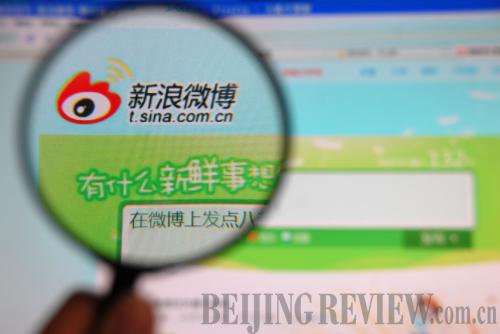 |
|
(CFP) |
Micro-blogging, known as wei bo in China, has expanded rapidly and become a hot trend for netizens this year. Just like Twitter, micro-blogs allow users to post short messages—limited to 140 Chinese characters or less—along with photos via the Internet, short message service or multimedia messaging service. A blogger's "followers" can immediately view these updates and make comments or forward the updates to others. Besides sharing photos and personal information, micro-bloggers use wei bo to follow news agencies and keep up-to-date on activities of their favorite celebrities, many of whom have micro-blogs.
Experts estimate 65 million users will have active micro-blog accounts on domestic service providers by the end of 2010. Some TV shows and conferences have also adopted micro-blogging in interactive programs. Funny or touching stories transmitted on micro-blogs can turn people into stars overnight.
Micro-blogging has also made citizen journalism and watchdog work easier. In 2010 many pieces of news were first released through micro-blogs. Average netizens can now convey their thoughts and observations through micro-blogs anytime, anywhere.
Art Prices Soar
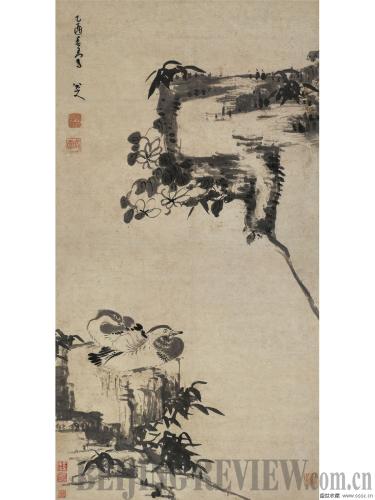 |
|
(FILE) |
A rare piece of ancient Chinese calligrapher Wang Xizhi's work was sold on November 20 for a staggering 308 million yuan ($46.38 million). The next day another record was set when Long March, a water color by Li Keran, was sold for 107.5 million yuan ($16.17 million). In addition, works by Zhang Daqian and Bada Shanren have also been auctioned for more than 100 million yuan ($15 million) this year. Prices for modern art works also soared alongside China's art collection fever in 2010.
Commemorating Chopin
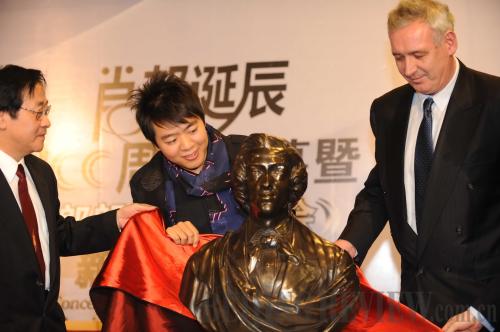 |
|
(IC) |
March 1 marked the 200th birthday of the famous Polish composer Frederic Franciszek Chopin (1810-49). The Polish Parliament declared 2010 the Year of Chopin. Music lovers from different countries celebrated the occasion. China and Poland jointly held a series of commemorative activities, featuring world-renowned Chinese pianists such as Li Yundi and Lang Lang.
In 2010, a wave of "group-buying," hit China, fueled by the convenience of the Internet. Many Chinese consumers have joined forces online on local and national websites to buy things together in order to realize bulk discounts. They have saved thousands of yuan on big-price items like cars and home furnishings as well as concert tickets.
Modeled on the hot U.S. website Groupon.com, group-buying websites are now booming in China. These websites save customers from face-to-face haggling and use group purchasing power to get good discounts on things to buy, see, do and eat in many cities across China. Customers only get the day's discount if a specified number of people sign up, guaranteeing a certain volume of sales that day.
Reports said by July, 94 major Chinese group-buying websites had reported 134 million yuan ($19.7 million) in purchases from 2.72 million buyers. With consumers eager to save money, more than 1,000 group buying websites have sprung up, causing severe pricing competition among them.
Group-buying Becomes Popular
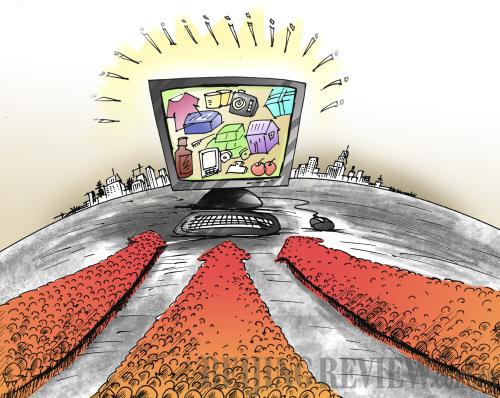 |
|
(CFP) |
In 2010, a wave of "group-buying," hit China, fueled by the convenience of the Internet. Many Chinese consumers have joined forces online on local and national websites to buy things together in order to realize bulk discounts. They have saved thousands of yuan on big-price items like cars and home furnishings as well as concert tickets.
Modeled on the hot U.S. website Groupon.com, group-buying websites are now booming in China. These websites save customers from face-to-face haggling and use group purchasing power to get good discounts on things to buy, see, do and eat in many cities across China. Customers only get the day's discount if a specified number of people sign up, guaranteeing a certain volume of sales that day.
Reports said by July, 94 major Chinese group-buying websites had reported 134 million yuan ($19.7 million) in purchases from 2.72 million buyers. With consumers eager to save money, more than 1,000 group buying websites have sprung up, causing severe pricing competition among them.
Buddha's Skull Relic Enshrined in Nanjing
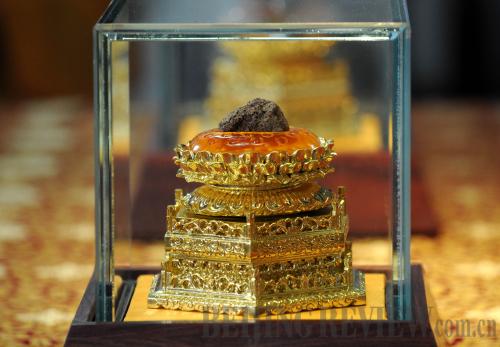 |
|
(CUN CAN) |
A sacred Buddhist relic—said to be part of the skull of Sakyamuni, Buddhism's founder—was enshrined in Nanjing's Qixia Temple. The relic, which was found in a 1,000-year-old miniature stupa unearthed in Nanjing in July 2008, resurfaced after thousands of years on June 12, 2010.
It is believed to be the only known part of the skull of the supreme Buddha Sakyamuni in the world. Some believers view the relic as evidence of Sakyamuni's enlightenment and spiritual purity. Monks at the temple enshrined the relic in a miniature gold box that ensures stable temperature and humidity.
The Qixia Temple has long been one of China's most important monasteries and remains one of the largest Buddhist seminaries in the country, making it a fitting site for the ceremony.
Disneyland Comes to the Mainland
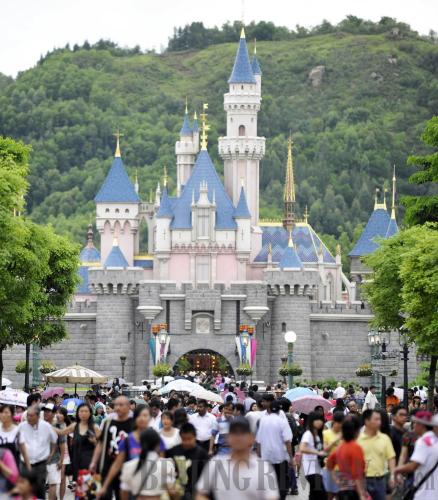 |
|
(HUANG XIAOYONG) |
An agreement to build a Disneyland in Shanghai was signed on November 5 between the Walt Disney Co. and the Shanghai Shendi Group, after a decade of planning and discussion. Shanghai's Magic Kingdom will be the fourth Disney theme park outside the United States. Others are in Paris, Tokyo and Hong Kong.
The park is expected to open in 2014. Covering an area of 1.16 square km, it will be the largest Disneyland in the world.
The Shanghai Disneyland will become a new engine for the city's economy. It is estimated the park will provide 50,000 new jobs. The project will also benefit other sectors, including real estate, transportation systems, tourism, retailing and the animation industry. In addition, Shanghai Disneyland will help shift the region's economy from a reliance on manufacturing to service industries. | 